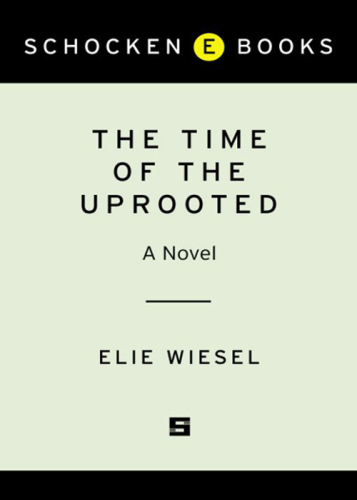
The Time of the Uprooted
A Novel
کتاب های مرتبط
- اطلاعات
- نقد و بررسی
- دیدگاه کاربران
نقد و بررسی

July 11, 2005
Nobel Prize–winner Wiesel (The Judges
, Night
) considers the cost of exile for a writer and his circle of refugee friends in this meandering yet weighty new novel. Gamaliel Friedman, a Czech Jew, escaped to Hungary as a child during WWII and survived in the care of a Christian cabaret singer named Ilonka. As the book opens in present-day New York, Gamaliel calls on a nameless dying woman who only speaks Hungarian, and his numerous visits to her hospital bed are interspersed with stories of his many loves and losses. Gamaliel's statelessness is in some ways at the root of all his misery: Ilonka's disappearance, his wife's suicide, daughters who despise him and his unhappy career as a ghostwriter. His only consolations are his manuscript the Secret Book
, and his small, colorful group of fellow stateless Jews. Wiesel entwines their searing memories and present troubles with Gamaliel's, and the novel's structure sometimes represents the refugee experience: buffeted from one place to the next, never sure of the journey's goal. Though the story ends on an optimistic note, this remains a bleak and unsettling novel, an exploration of the power and mystery of stories, as well as their ultimate failure to change the world.

July 15, 2005
In 1939, Gamaliel Friedman and his parents flee Czechoslovakia and the Nazi pogroms for the safe haven of Hungary. When the persecutions encroach upon the family in Budapest a few years later, Gamaliel's parents leave him in the care of Ilonka, a young Christian cabaret singer who successfully disguises him and helps him survive the war. Eventually, he leaves Hungary and Ilonka, making his way through Vienna and Paris and ending up in New York. Now in his twilight years, Gamaliel spends his days swapping memories with five men whose experiences closely mirror his own. In a perplexing moment, a doctor seeking help in drawing out an elderly Hungarian woman summons Gamaliel to a local nursing home. Who is this woman? How is she related to Gamaliel? Could it be Ilonka? These events lead Gamaliel to ponder the nature of love and loss, memory and forgetting, despair and hope. His friends act much like Job's companions, offering contradictory explanations for his situation. While Wiesel's later works have seldom possessed the force of his early ones (e.g., " The Night Trilogy"), his reflections here powerfully capture the ways that we deal with the past and the ways that it imbues our lives with ambivalent feelings about our identities. [See Prepub Alert, "LJ "4/1/05.] -Henry L. Carrigan Jr., Lancaster, PA
Copyright 2005 Library Journal, LLC Used with permission.

May 1, 2005
Throughout his long and active career, this well-regarded writer has explored, in novel and memoir form, the contemporary Jewish consciousness forged in the face of the atrocities committed by the Nazi regime that not so much stained as branded Europe in the 1930s and 1940s. In Wiesel's latest work, a slow-building yet eventually overwhelming novel, he uses one man's life, that of Gamaliel Friedman, who was a boy during the Holocaust and now, advanced in years, resides in the U.S., as a paradigm of the person in perpetual exile: the refugee who never feels as if where the body is at home is where the soul rests comfortably. The novel is also about memory: in this case, Gamaliel's propensity for floating through his personal history, recalling his wife, who committed suicide, and his now-alienated daughters; but in particular there is Ilanka, the polestar of his entire existence, the neighbor woman who took him in and passed him off as a Christian child, removing him, then, from the Nazi sweep of Jews in every corner of occupied Europe. The novel comes to be a disturbing but lesson-filled meditation on identity and the resulting disturbance of the heart and mind when one never possesses a secure one. (Reprinted with permission of Booklist, copyright 2005, American Library Association.)

























دیدگاه کاربران